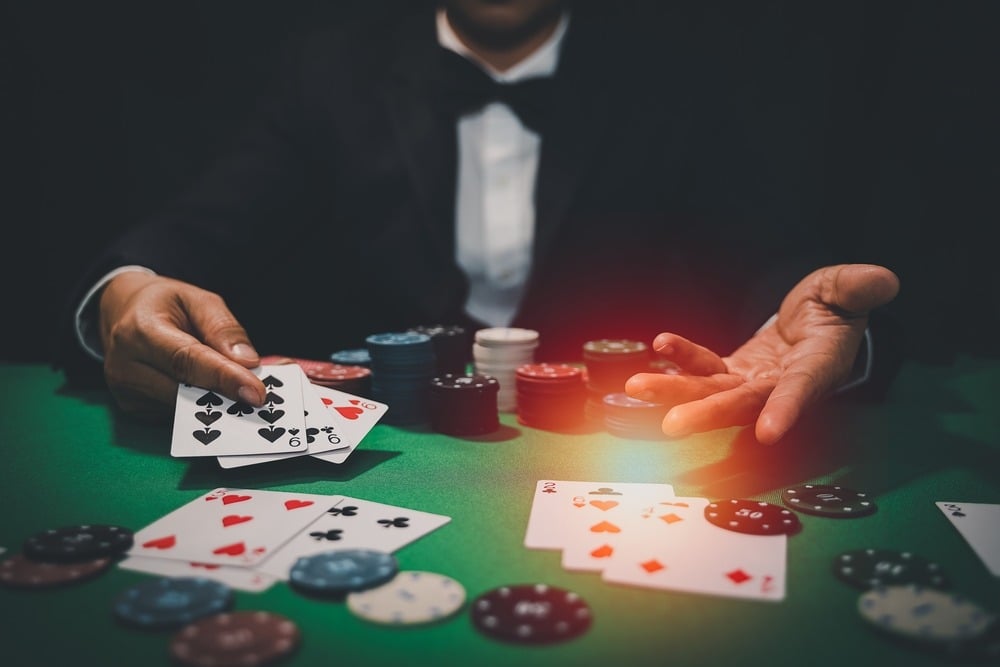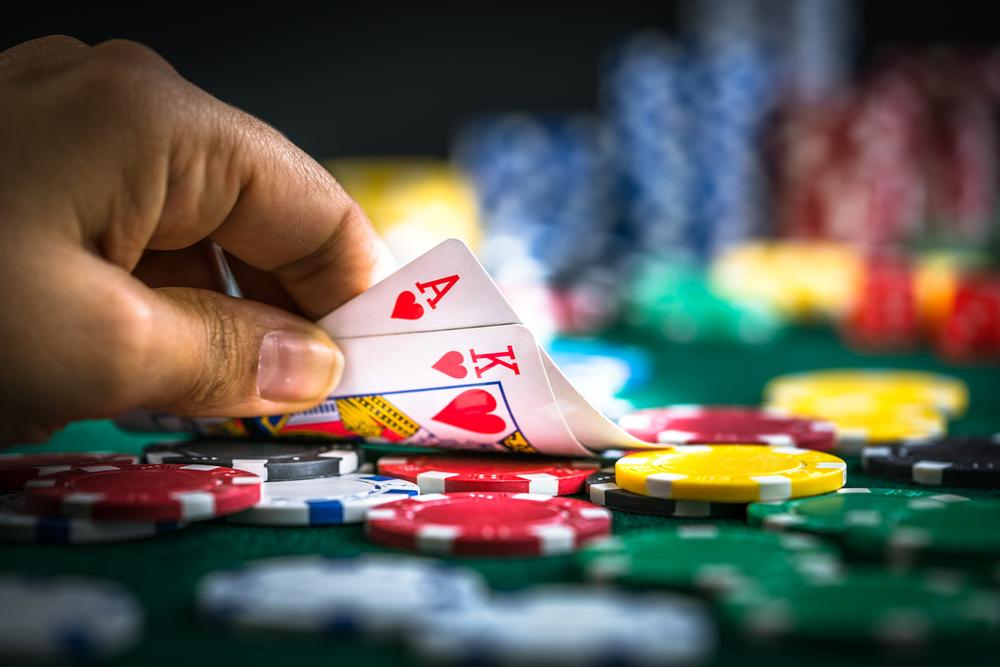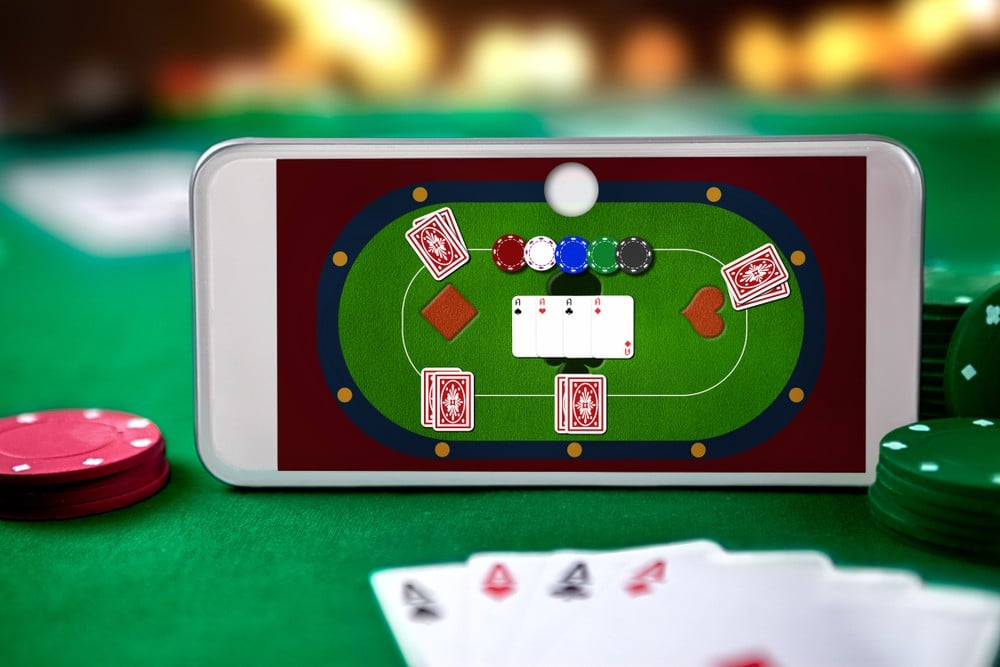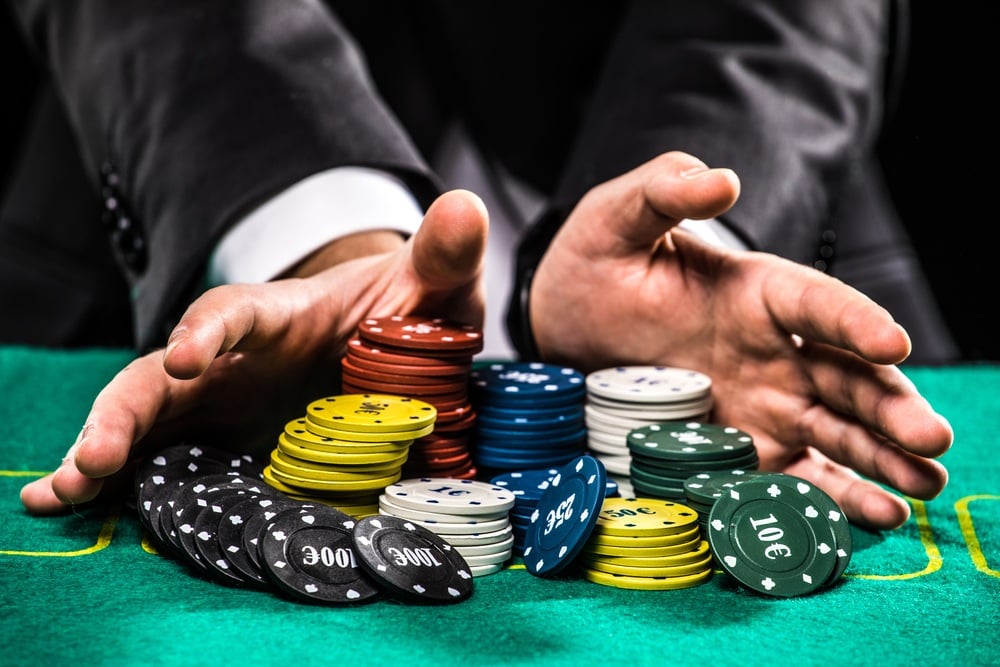[ad_1]
Maintaining Concentration During Online Poker Tournaments: What You Need to Know
- Regular Breaks: Take short breaks every hour to destress and refresh your mind. Use this time to stretch, hydrate or engage in an activity unrelated to poker.
- Avoid Distractions: Keep your gaming environment free from distractions. Close unnecessary tabs and apps on your computer, and switch off alerts or notifications that may interrupt focus.
- Utilize the Pomodoro Technique: This time management method involves breaking your time into 25-minute intervals of focused activity, each followed by a five-minute break.
- Mindfulness Exercises: Practicing mindfulness or meditative techniques can enhance concentration and mental endurance. Regular deep-breathing exercises can also help reduce tension and anxiety.
- Be Aware of Cognitive Fatigue: Periods of intense concentration can often lead to cognitive fatigue, characterized by a decrease in alertness and decision-making ability.
Imagine you’re deep into an online poker tournament. You have an opportunity to book a big win, but your focus is slipping. You misread the board, make an impulsive call, and suddenly, all your hard work unravels. Losing concentration during a long session can be a tournament killer, but it doesn’t have to be.
Maintaining focus in online poker tournaments is a skill you must master in order to succeed. Staying mentally focused can be the difference between busting out early or making it to the final table. But when fatigue sets in and hours of play blur together, keeping your attention on the game becomes a real challenge.
In this article, I’ll share practical, science-backed poker strategies to help you maintain your focus throughout long online poker tournaments. From managing your mental state to training your brain for mental endurance, these tips will help you stay focused so you can make better decisions, and improve your chances of finishing strong.

Image Credit WPixz/Shutterstock
Online Poker Tournaments: Basic Focus Strategies
While prepping for an poker tournament, whether online or in a casino, by removing distractions and fueling your body with nutritious foods and proper hydration is certainly helpful, you also need specific mental strategies to ensure your focus remains sharp.
There are several ways to actively train and protect your focus as the tournament progresses. Here are a few to get you started:
Break Tasks Into Manageable Chunks
Sustaining focus over the course of an entire tournament can be mentally overwhelming if you look at it as one continuous event. A helpful mental conditioning technique is to break the tournament into smaller, more manageable chunks.
This could look like focusing on playing optimally for the next hour or working through the current blind level with the goal of consistently growing your chip stack.
By mentally breaking the tournament down into smaller segments like this, you avoid becoming overwhelmed by the enormity of the event. Think of it like running a marathon: rather than focusing on the entire 26 miles, a runner might focus on getting to the next mile marker.
In poker, staying focused on the next phase of the game can keep your brain engaged without burning out.
Use the Pomodoro Technique for Structured Focus
A specific strategy that can help you with task chunking is the Pomodoro Technique. It’s a time-management strategy that involves working in short, focused intervals, usually 25 minutes, followed by a 5-minute break.
To use it, set a timer for 25 or 30 minutes, and during this time, give your full attention to every hand, bet, and opponent action. When the timer goes off, give yourself a mini-break, where you quickly stand up, stretch or shift your eyes away from the screen, to reset.
Structured breaks like this can help you maintain a fresh, focused mind for the entirety of the tournament.
Practice Mindfulness Between Hands
Mindfulness is a way to stay present and fully engaged, and it’s particularly useful in poker where it’s easy to get distracted or let past hands affect future decisions. Between poker hands, take a few moments to ground yourself by focusing on your breathing, feeling the weight of your body in the chair, and checking in with how you’re feeling.
If you’re part of a rapid-fire sit’n’go poker tournament or a multi-table poker tournament (MTT), you use the gap between play sessions to focus on your mindfulness.
You can also try focused breathing as a mindfulness method during any downtime in the tournament. Try the 6-2-7 breathing pattern: breathe in for a count of 6, hold for 2, and exhale for 7. This helps calm your mind, slow down racing thoughts, and reset your concentration for the next hand.

Image Credit Okanakdeniz/Shutterstock
Break the Autopilot Cycle
Be wary of falling into autopilot mode, which happens when you start clicking buttons out of habit rather than making conscious, well-thought-out decisions. The grind of endless hands can lull your brain into disengagement, and that’s when autopiloting kicks in.
To break the autopilot cycle, make a point to ask yourself questions regularly, like “What is my opponent’s range in this spot?” “Why am I making this bet?” “What’s the best play given the board texture and positions?”
Giving yourself pointed questions to answer will help you stay mentally engaged while also helping you make more thoughtful, strategic decisions.
Rotate Your Focus Between Short-Term and Long-Term Goals
It’s easy to lose sight of your overall tournament strategy when you’re caught up in the minutiae of each individual hand. One way to maintain long-term focus is to mentally shift between short-term tactical goals and long-term strategic objectives.
For example, during any given hand, your short-term goal might be making the best decision based on your hand and the current table dynamics. But, at regular intervals, zoom out and consider your long-term tournament goals.
Are there any poker ICM considerations you need to be aware of? How far off the money are you? How healthy is your chip stack? By alternating your focus in this way, you’ll be able to think holistically about how to navigate the entire tournament.
Be On The Lookout For Signs of Cognitive Fatigue
Cognitive fatigue is a gradual decline in your mental sharpness that occurs after extended periods of concentration. It often starts small and can look like overlooking minor details or making snap decisions.
If left unchecked, it can lead to larger poker mistakes, suboptimal decisions, or even tilt. You must learn to recognize the early signs of mental fatigue if you don’t want it to affect your game.
Common signs of cognitive fatigue include:
- Decision Fatigue: If you find yourself rushing decisions or defaulting to automatic plays without fully thinking through your options, this is a clear sign of mental fatigue. Decision fatigue happens when your brain’s capacity to process information diminishes after prolonged use, and usually results in either impulsive or lackadaisical thinking.
- Loss of Focus: You may notice that your mind starts wandering more frequently or that you’re having trouble concentrating on each hand. You may also get distracted by random thoughts or things happening outside the game.
- Emotional Reactivity: If you’re finding it harder to manage your emotions after a tough hand or bad beat, this could be a sign that your mental reserves are becoming depleting. Cognitive fatigue often leads to heightened emotional sensitivity and can make you more prone to tilt.
- Increased Risk-Taking: Players experiencing mental fatigue often take unnecessary risks or make overly aggressive plays. If you’re making plays you wouldn’t normally make, it’s time to check in with your mental state and find ways to refocus.

Image Credit Cherries/Shutterstock
Above all, you want recognize these warning signs so you can take action before your mental fatigue negatively impacts your performance and possibly sends you out of the tournament.
Online Poker Tournaments: Advanced Focus Strategies
While it’s possible to force yourself to concentrate, you really shouldn’t rely on willpower to maintain your focus over the course of a long poker tournament. Instead it’s better to train and develop your concentration muscle through mental conditioning.
Just like physical conditioning prepares athletes for endurance events, mental conditioning sharpens your mind to stay engaged, focused, and resilient during long events. In this section, I’ll share several ways you can proactively train your focus and mental stamina.
Use Daily Focus Practice
Focus gets stronger with consistent training. If you wait until the day of a tournament to push your concentration to its limits, you’re setting yourself up for failure. Instead, make mental conditioning a regular part of your poker study routine. Here are a couple habits you can build to improve your ability to sustain focus over time:
- Focused Attention Exercises: Start by dedicating a short amount of time (10-15 minutes) to focusing on a single poker task without distraction like reviewing a hand history or studying a specific concept like PFR. As your concentration improves, gradually increase the time you spend intently focusing. Consistently practicing focus like this will increase your brain’s ability to stay focused for extended periods.
- Mindfulness Meditation: Incorporating mindfulness meditation into your daily routine will improve your ability to stay present in the moment. A simple practice of focusing on your breath for 5 -10 minutes at a time can help train your mind to stay anchored in the present. Being able to do this will help you ignore distractions while simultaneously strengthening your attention for long poker sessions.
The more you train your focus in a controlled way, the more prepared you’ll be when it’s put to the test in online tournaments.
Monitor Your Mental State
One of the most important factors in maintaining optimal performance during an online tournament is being aware of your mental state. Cognitive fatigue, emotional fluctuations, and poker decision-making lapses can sneak in, but if you actively monitor your mental state, you can take proactive steps to adjust before these issues impact your play.
One way to do this is through the use of mental check-ins. A mental check-in requires that you take a moment to audit your current level of focus, emotional state, and cognitive sharpness. Doing so can help you stay aware of your state of mind while identifying when adjustments are needed.

Image Credit F8 studio/Shutterstock
Here’s a simple framework for conducting a mental check-in:
- Ask Yourself How You Feel: Are you feeling mentally sharp, or are you starting to get tired? Are you calm, or are you feeling emotionally charged (e.g., frustrated or anxious)? Take a moment to reflect on your current emotional and mental state.
- Rate Your Focus Level: On a scale of 1 to 10, how focused do you feel right now? If your score is dropping below a 7, it’s time to implement focus-restoration strategies like taking a quick break or a few deep breaths.
- Identify Triggers: If you’re feeling distracted or emotionally unsettled, identify what’s causing it. Did you just lose a big hand, or have you been sitting for too long without a break? Knowing the cause can help you choose the right response.
Mental check-ins can be done periodically throughout the tournament, but are especially important during breaks or after a big win or loss.
If after your check-in you feel your focus and concentration is starting to slip, it’s important to have a toolbox of quick recovery techniques to help you get back on track. Here are a few effective recovery techniques:
- Deep Breathing: One of the quickest ways to reset your mental state is through controlled breathing. Use the 6-2-7 breathing technique mentioned earlier to calm your mind and reset your focus.
- Visualization: Take a minute to visualize yourself playing with clarity and focus. See yourself making focused, confident decisions. This is a good way to help you regain your focus.
- Stretch Out: A quick physical movement like stretching or walking around the room can provide a mental reset. Physical movement helps boost circulation and energizes the brain, resulting in an improved mental and emotional state.
- Reframe Negative Thoughts: If you find yourself getting stuck in negative thought patterns, you can use cognitive reframing to shift your perspective. Rather than thinking that you’re the unluckiest person at the table, you can reframe it as bad beats are part of poker and each hand is an opportunity to improve.
As you can see, monitoring your mental state is an essential part of maintaining peak performance during long online poker tournaments. By recognizing the signs of cognitive fatigue, conducting regular check-ins, and using quick recovery techniques, you can stay in control of your mindset throughout the tournament.
Mastering Your Mental Game
Online poker tournaments are as much a mental battle as they are a test of your technical poker skills. Maintaining focus and concentration for hours requires preparation and mental conditioning.
By taking steps to implement focus strategies while consistently monitoring your mental state, you’ll have the opportunity to stay sharp from start to finish.
Because poker is a long-term game, your ability to stay mentally engaged throughout a tournament is one of the most profitable skills you can develop. If you can stay calm, focused, and emotionally balanced over the course of many hours, you’ll have a better shot at finishing in the top spot.
Title Image Credit Stokkete/Shutterstock
[ad_2]
Source link
